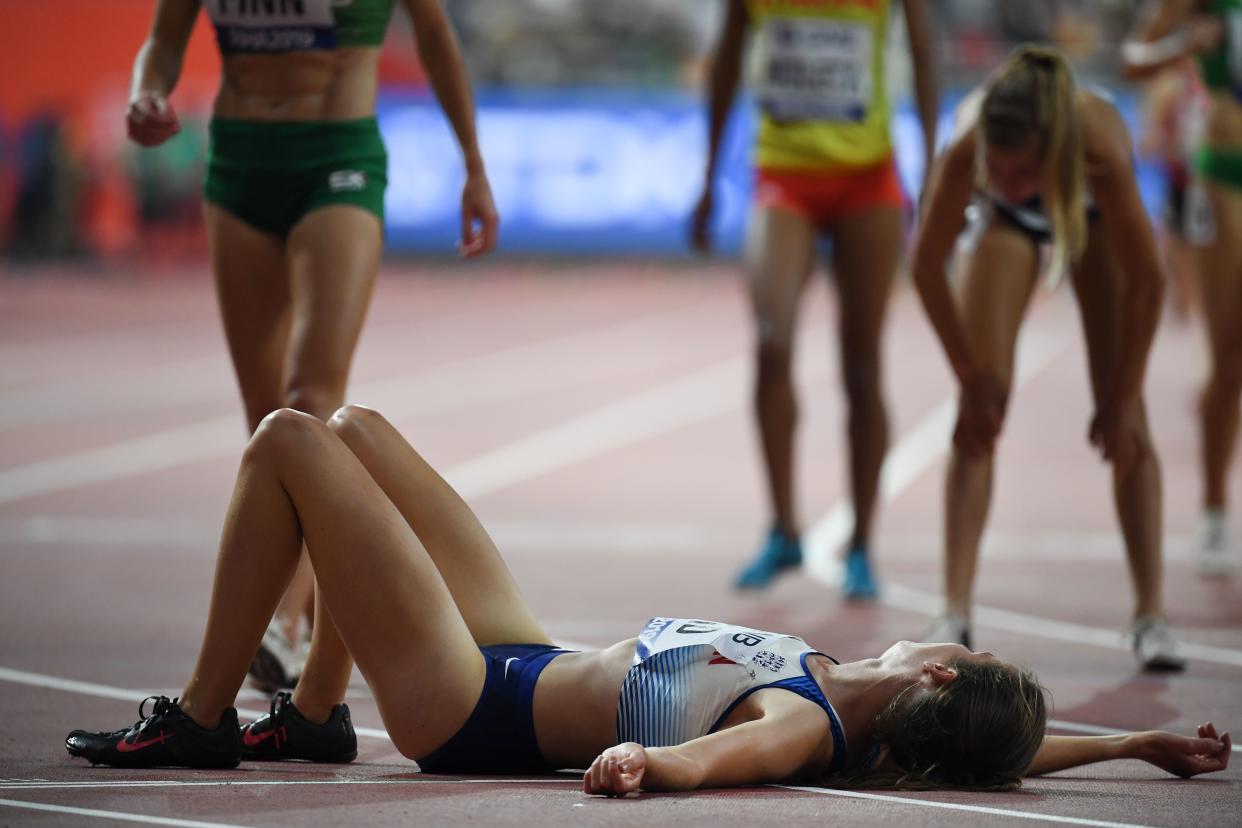IAAF will go ahead with midnight marathon at championship despite 'furnace'-like heat in Qatar

The blazing summer heat in Qatar continues to be a concern for major athletics event planners, from historic changes to the World Athletics Championships that began Friday to what it means for the 2022 World Cup.
Heat, humidity impact track and field champs
Qatar is the first Middle Eastern country to host the IAAF World Athletics Championships and is dealing with how to keep athletes safe. Temperatures in the capital city of Doha are soaring above 100 degrees with high humidity. In scheduling the event, IAAF pushed it back a month to avoid the heat.
Most athletes will participate in the air-conditioned Khalifa Stadium, where it’s about 70 degrees Fahrenheit. Bahamian coach Ronald Cartwright described the heat to Reuters:
“We are from a hot climate as well, but nothing to compare with this. Here you walk outside and it’s like somebody put a heater on you. I guess that is why they are doing it at night.”
The marathon runners and endurance athletes are forced to take to the sweltering temperatures, even though it’s relatively cooler than the day.
Marathon set for midnight
As one precaution, it moved the women’s and men’s marathons to the unusual start time of 11:59 p.m. They won’t be finished until after 2 a.m.
The women’s marathon is set for Friday night and the IAAF confirmed that it will go on as scheduled. In a statement, the IAAF said the West Bulb Globe Temperature — an international standard for measuring heat, humidity and thermal stress — falls inside the range for which the IAAF was planning. It is expected to be at or below 86 degrees.
Still, the marathon could be moved to later, or postponed to later in the event. Via the IAAF statement:
“Any decision to alter the starting time of the event will be made by 10:30 p.m, on the recommendation of the IAAF Medical Delegate.”
Organizers are taking extra precautions with more hydration stations and more paramedics at the course around the Doha waterfront. The runners are also being monitored throughout the day leading up to the race. The IAAF Medical Delegate has the authority to withdraw any athlete before or during the race if it feels the runner is experiencing “any type of severe distress.”
Heat will impact runners’ times
Unsurprisingly, a 2017 New York Times analysis found the fastest marathon times came during cooler days (it focused on temperature and not humidity, which wasn’t recorded). It found the best temperatures were days in the 40s and anything higher can have a monumental impact on amateur runners as well as elite runners.
The data found that elite runners’ times increased by four minutes for running in the 70s compared to the 40s. For amateur runners, it could mean an additional 20 minutes.
Others have estimated a 15-second decrease per mile, which would be 6 1/2 minutes.
Race-walk world record holder furious
The race-walking competition will also take place outside and at a later start time to avoid excessive heat. Yohann Diniz, the world champion from France, told AFP he is “disgusted” by the conditions.
"They take us for idiots... I am extremely upset. If we were in the stadium we would have normal conditions, between 24-25 degrees (75.2-77 degrees F), but outside they have placed us in a furnace, which is just not possible.
"They are making us guinea pigs."
His remark was a reference to the much-anticipated and controversial men’s soccer World Cup in 2022.
Doha a test run for World Cup 2022
The track and field championships are somewhat of a test run for the largest men’s soccer tournament, set to be in Qatar in 2022. That event also underwent a date change, moving from summer to Nov. 21 through Dec. 18. And since it was awarded the bid, the conversation has been around how dangerous the heat would be for athletes. It is relying on an energy-efficient cooling system it says can make open-air stadiums usable in high temperatures.
That first test, of course, comes at the track and field world championships right now.
Only a few hours into the competition, a 5,000-meter runner already collapsed and had to be helped over the finish line due to heat. Soccer players run anywhere from seven to 10 miles in a game and are exposed to the heat for a longer period than most track and field athletes.
More from Yahoo Sports:


